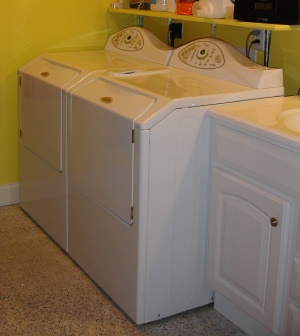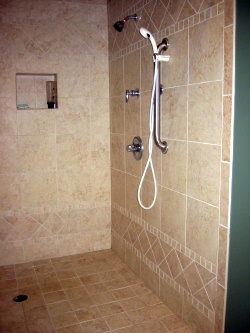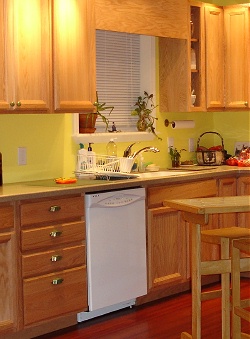|
Water
usage in Project Home
|
||
|
||
| We
have the Energy Star® Maytag Neptune front-loader washing machine.
It uses less water and electricity and is able to handle a larger
load at a time than most standard washing machines and certainly all
top loaders. We use the "max extract" feature to remove as much excess water as possible so the clothes dry quickly on our clothes rack or outdoor line (as you see, we have a dryer but use it only for fluffing or in last minute urgent dry situations. With the max extract feature, it cuts the drying time to approx 15 minutes for a standard load - the old dryer took over an hour). |
 |
|
|
||
|
|
|
|
|
We
have a dual shower head, of which one is a hand-held with a switch
to turn off after soaping up - like a military shower. This took
our shower water use from 15 gallons down to 5 gallons - even
for a woman when I wash my shoulder length hair!
We have low flush toilets - they say "1.5 gallons" but in fact use 1.75 gallons per flush, even though it has been properly filled to manufactures water mark. Using less than that mark, it often takes 2 flushes. We adhere to the yellow-mellow rule for daily flushing. |
 |
|
|
